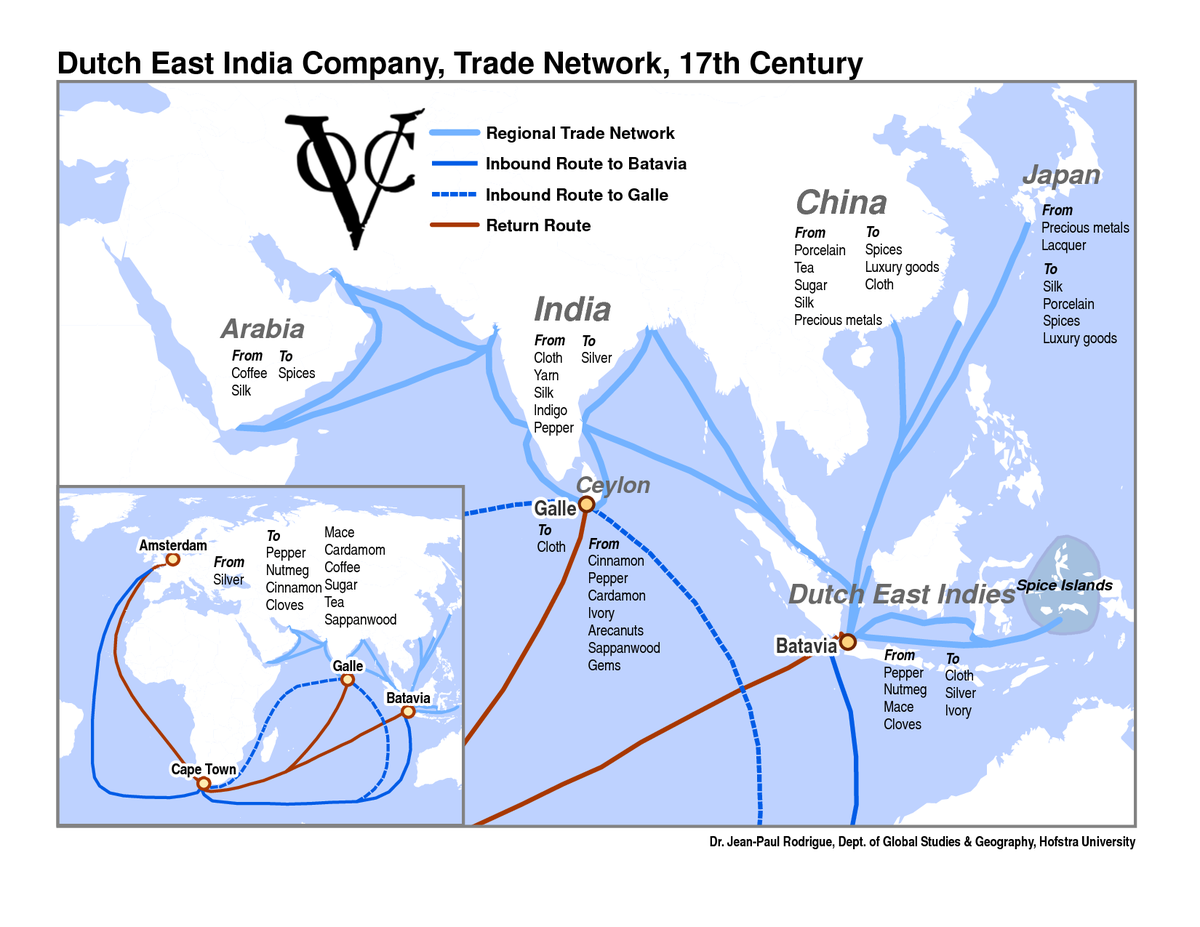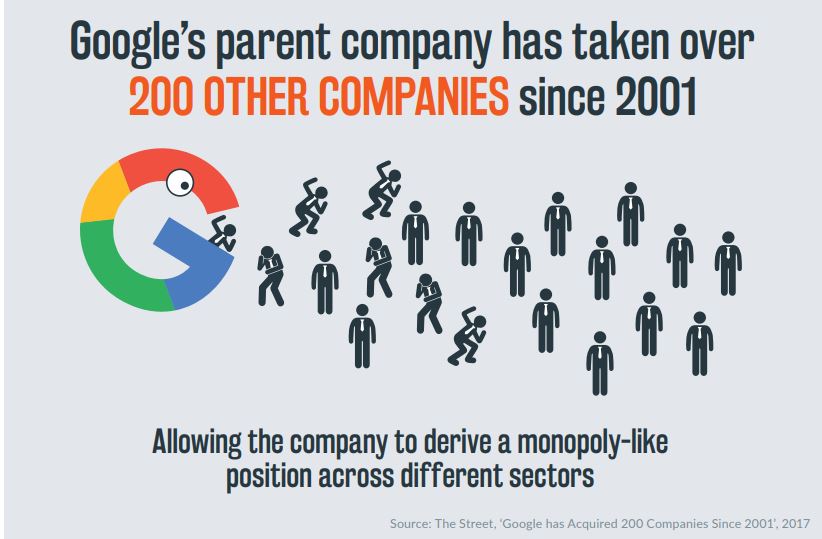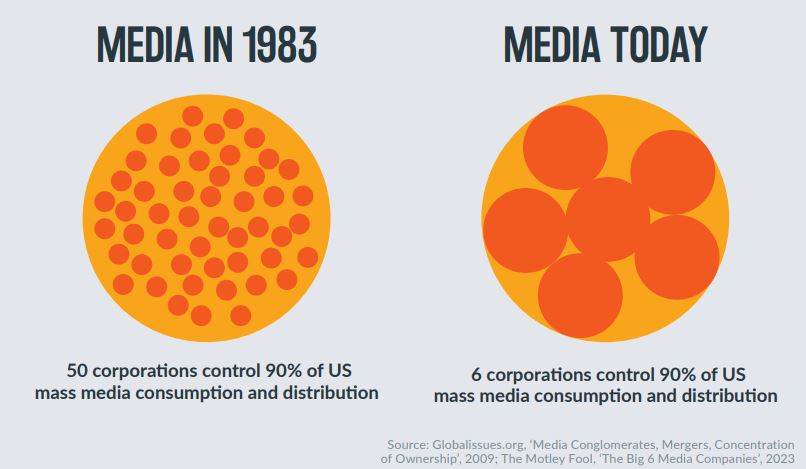A handful of firms control every aspect of your life, from the medicine you take to the food you eat. But why is the issue and what can we do about it?
A quick thread on a report by myself and @nickdearden75 for @GlobalJusticeUK on monopoly capitalism.
globaljustice.org.uk/resource/monop…
A quick thread on a report by myself and @nickdearden75 for @GlobalJusticeUK on monopoly capitalism.
globaljustice.org.uk/resource/monop…
As vast swathes of society are struggling with inflation, low pay and decimated public services, the profits of the biggest 500 firms on the planet near enough doubled. 

Yet, the concentration of wealth and resources is nothing new. The Dutch East India Company was huge in the 17th century with a monopoly over spices and textiles. If they were around today, they would be worth $7.9 trillion. 

At the end of the 19th century, a new class of super-rich individuals emerged who monopolised everything from banking to railroads to oil drilling. The "robber barons" were so influential that early in the 20th century, there was a considerable effort to break their control.
For more on this, see the Sherman Antitrust Act, the Clayton Antitrust Act and the Money Trust Enquiry.
(if anyone wants their ear chewed off on this by me, let me know!)
(if anyone wants their ear chewed off on this by me, let me know!)

Fast forward to today and things are just as concentrated as before. No matter what industry you look at, from pharmaceuticals, food, energy, media, tech, and so on, they are dominated by a small group of firms.
Some eye-opening stats:
• Between 1995 and 2015, 60 pharmaceutical companies merged into just ten in the US.
• Between 1995 and 2015, 60 pharmaceutical companies merged into just ten in the US.

• Between 2020 and 2022, 62 food billionaires were created.
• The top ten such commodity traders
brought in more than half a trillion dollars in 2020.
Cargill, the biggest trader, saw its profits rocket by
64% during the pandemic.
• The top ten such commodity traders
brought in more than half a trillion dollars in 2020.
Cargill, the biggest trader, saw its profits rocket by
64% during the pandemic.

• Since 2001, Google's parent company, Alphabet, has taken over 200 companies.
• In 2021, Apple's profits skyrocketed by 65%, Amazon's by 50% and Alphabet's by 89%.
• In 2021, Apple's profits skyrocketed by 65%, Amazon's by 50% and Alphabet's by 89%.

During the pandemic, Jeff Bezos's net worth increased by 67%. And this is not because he was working 67% harder, far from it, but it was off the back of low-paid Amazon workers in very precarious contracts and unsafe working conditions.
But why is monopolisation a problem?
One reason, they erode democracy through lobbying and shaping the narrative through the media they own.

One reason, they erode democracy through lobbying and shaping the narrative through the media they own.


Another is that monopolies are destroying the planet. They do this through intensified agricultural production of monoculture crops, oil giants continuing to extract fossil fuels at an alarming rate and also funding climate sceptic propaganda.
Monopolies also drive poverty, inequality and economic fragility. You don't have to look far for this and you see this in your own lives. Implementing low wages. Record high profits. Fragile supply chains.
Scarily, households on average use markets that are 30% more concentrated than markets faced by the richest families. The poorer you are, the more reliant on monopolies your life is as they control most basic necessities - food, energy, housing, and healthcare.
But it is not all doom and gloom! We can fight back. Here are some suggestions:
• break up and decentralise economic power
• stop the endless train of mergers
• regulate corporate power and constrain the role of big finance
• break up and decentralise economic power
• stop the endless train of mergers
• regulate corporate power and constrain the role of big finance
•taking monopolies into public ownership and running them in the public interest
• new measures and practices to pinpoint monopolistic behaviour
• worker and community ownership of their workplaces and resources. Giving them a say on how their lives are run
• new measures and practices to pinpoint monopolistic behaviour
• worker and community ownership of their workplaces and resources. Giving them a say on how their lives are run
• and for me, one of the most important is increasing trade union density.
People across the world are already fighting back! From The People's Vaccine movement to La Via Campensina taking on food monopolies to the Make Amazon Pay campaign and everything in between. There is so much to be hopeful for that things can be better.
We hope we can inspire people to come together in a movement where we can reflect, debate and analyse the differences so that we can shape a liberatory future in the interests of people and the planet✊
There is a LOT I couldn't capture in this thread, so please go read and share the briefing. There is even more that didn't make the cut of the report's final version. Which means lots of fascinating debates and discussions to be had! globaljustice.org.uk/wp-content/upl…
Huge thanks to @nickshaxson and the rest of the Global Justice Now team for their comments and edits to the report.
@nickshaxson FINALLY, if you are about London on Saturday, do pop down to the Resisting Monopoly Capitalism conference which looks like it will be an amazing day. See you there!
eventbrite.co.uk/e/resisting-mo…
eventbrite.co.uk/e/resisting-mo…
• • •
Missing some Tweet in this thread? You can try to
force a refresh




